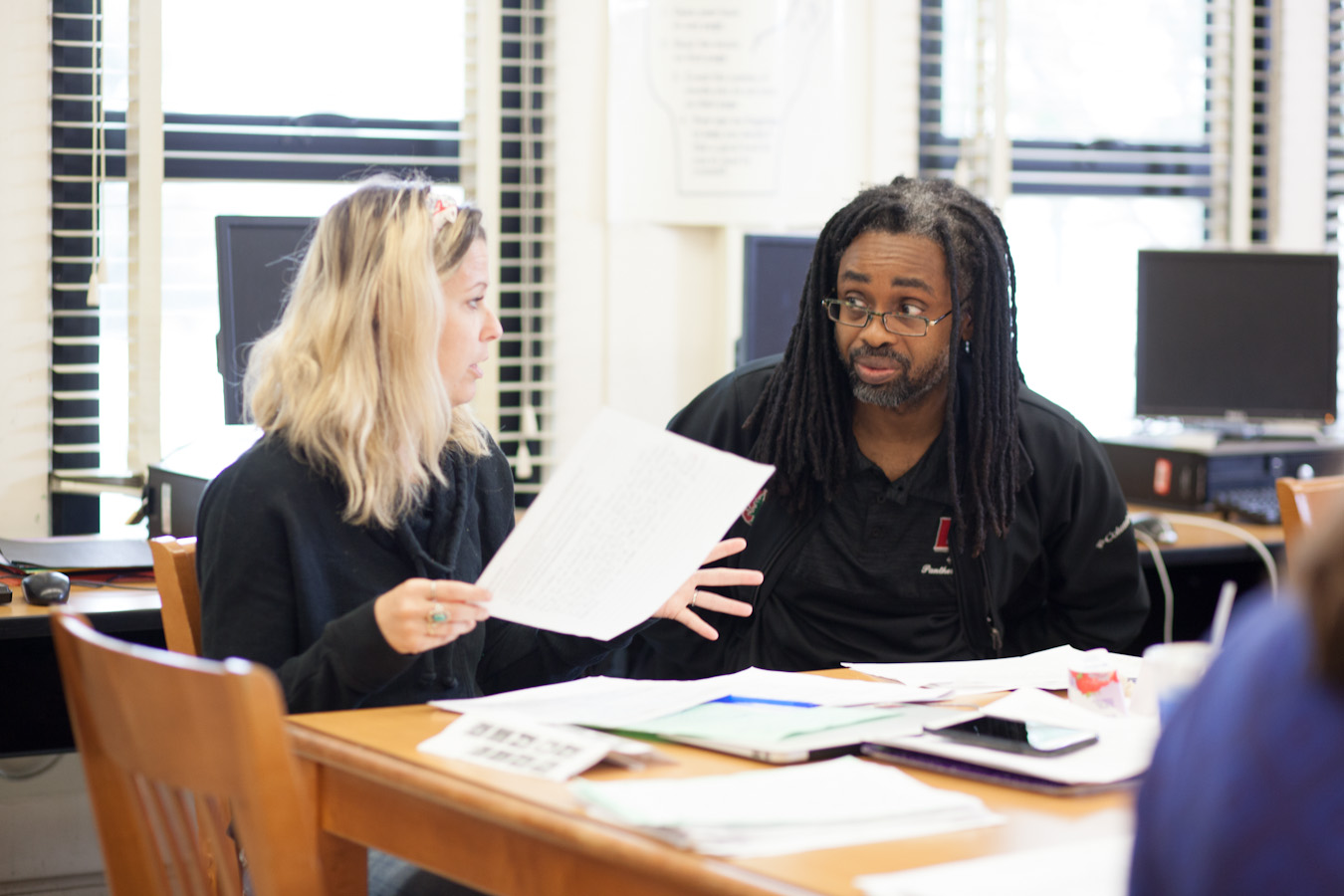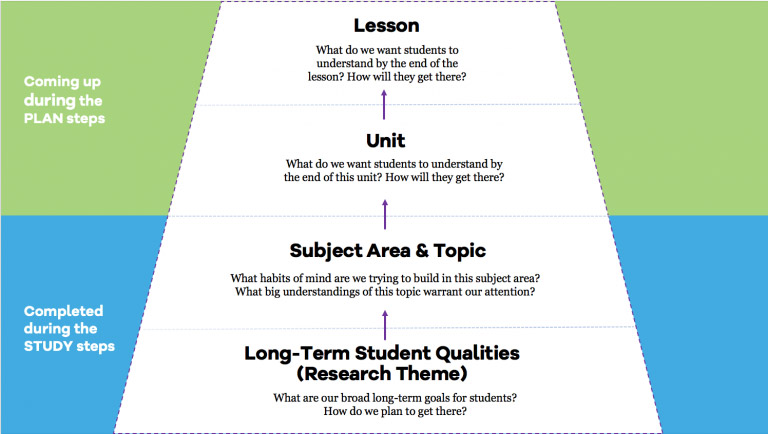A
Are You Ready to Plan?
Assess Your Work So Far
As shown in the graphic below, your team’s work to date–articulating your long-term goals and studying the topic–provides the foundation for the Plan phase. In the graphic below, you are now transitioning from the Study phase (blue) to the Plan phase (green).
B
Examine the Teaching-Learning Plan
Overview and Guiding Questions
Your team may already be using the Teaching-Learning Plan to summarize some of your thinking. If you are not familiar with it, now is the time to take a careful look at the Teaching-Learning Plan, which is designed to:
- Capture your team’s study of the topic, so readers can easily see what you learned.
- Explain and justify the unit and lesson design, including how they relate to your long-term goals.
- Guide lesson observers to collect data on key elements of the goals
- What features of this Teaching-Learning Plan are unfamiliar to us, and what is their purpose?
- What features might help other educators–who observe the lesson or who read the plan– learn from our team’s work?
After your review, write up components that your team has already discussed; for example, the Research Theme (with your Theory of Action) (#2) and the Background and Research on the Content (#3).
Resources:
C
Lesson Logistics
Decide the Research Lesson Date and Instructor
If you do not yet know which team member will teach the research lesson, you may want to decide soon (or agree when you will decide). Among experienced lesson study practitioners, teachers often commit to teaching a research lesson every year or two, as a way of building their professional learning, so you may already have an identified instructor. Sometimes the research lesson teacher naturally emerges during the Cycle, as one member of the team develops a strong vision for the lesson and interest in seeing the lesson with their own students. If more than one teacher is interested in teaching the research lesson, you can schedule it to be taught twice, preferably with at least a day in between teachings. If the lesson will be taught more than once, we recommend that you conduct the observation and post-lesson discussion on just one of the lessons, so that the focus is on learning deeply from the team’s lesson design–not on comparing two classrooms.
Other Logistics for the Research Lesson
Once you have set the instructor and date, you can:
- Arrange substitutes for the team members
- Collect parent and student consent forms for the research lesson class (if you plan to take video or collect student work)
- Invite a specialist to provide commentary at the end of the post-lesson discussion (see Reflect Step 3
- Choose a moderator for the post-lesson discussion (see Reflect Step 2)
- Invite other educators to observe the research lesson, if desired.






